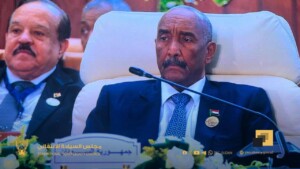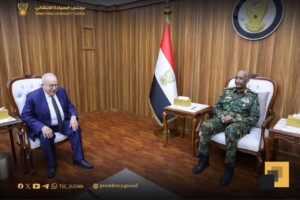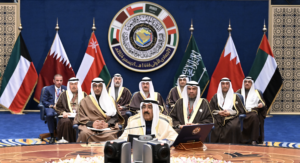‘No room for dialogue after 10 October’: Sudan presidential aide
According to Presidential Aide Ibrahim Mahmoud, the opposition forces allied under the Sudan Appeal are endangering the peace negotiations by announcing their definite rejection of the National Dialogue, initiated by President Omar Al Bashir in early 2014.
On 30 September, the allied opposition forces, consisting of the main armed movements and a number of opposition parties and civil society organisations, announced their new position regarding the peace talks with the government and the National Dialogue.
The Sudan Appeal Leadership Council agreed on an alternative national dialogue. The ruling party and its allies will not be invited, as “the only goal of the government-led national dialogue is to reinstate the crisis regime, appease the international community, buy time, divide the opposition and diffuse the public opinion.”
According to Presidential Aide Ibrahim Mahmoud, the opposition forces allied under the Sudan Appeal are endangering the peace negotiations by announcing their definite rejection of the National Dialogue, initiated by President Omar Al Bashir in early 2014.
On 30 September, the allied opposition forces, consisting of the main armed movements and a number of opposition parties and civil society organisations, announced their new position regarding the peace talks with the government and the National Dialogue.
The Sudan Appeal Leadership Council agreed on an alternative national dialogue. The ruling party and its allies will not be invited, as “the only goal of the government-led national dialogue is to reinstate the crisis regime, appease the international community, buy time, divide the opposition and diffuse the public opinion.”
At a news conference of the 7+7 National Dialogue Mechanism in the Sudanese capital on Thursday, the Presidential Aide responded by saying that the opposition forces have reneged the AU peace talks roadmap by their rejection of the National Dialogue. He said that the Sudan Appeal forces met in Addis Ababa in late September “under the pretext of a training course and with the support of a foreign organisation, in order to derail the Dialogue and agree on disappointing outcomes for the people of Sudan”.
Mahmoud emphasised that there never has been room for dialogue outside the National Dialogue framework. The matters proposed by the Dialogue committees and endorsed by all members will definitely not be renegotiable after the rounding-up ceremony on Tuesday.
Govt. of national uniuty
He stated that a government of national unity will be formed after three months, after the parliament has endorsed constitutional amendments and operating procedures that will be included in the new Permanent Constitution.
The Secretary-General of the National Dialogue, Hashim Ali Salem, said that “Sudan will witness a pivotal shift in the history on 10 October, when the dialogue will end and the outcomes will be implemented on the ground”.
In a press conference on the outcomes of the Dialogue on Friday, member of the 7+7 National Dialogue committee Fadul El Sayed Shueib strongly denied that the goal of the Dialogue concerns “a re-division of the cake and a re-distribution of the ministries among allied political parties and armed movements”.
Closing session
Chadian President Idris Deby, Mauritanian President Mohamed Ould Abdelaziz, Egyptian President Abdelfattah El Sisi, Ugandan President Yoweri Museveni, and Ethiopian Prime Minister Hailemariam Desalegn will attend the concluding session of the National Dialogue on 10 October.
Dr Nkosazana Dlamini-Zuma, Chairwoman of the AU Commission, the heads of the Arab League, and Islamic Cooperation Organisation will attend the ceremony as well, together with representatives from the Russian and Chinese governments.
Alliance
Meanwhile, the Sudan Appeal groups and the Future Forces of Change (FFC) agreed to join efforts in order “to build a national political project that could bring all Sudanese together”.
In a joint statement on Friday, the two alliances said they agreed to continue “to meet, consult and coordinate” to reach their goals.
The Sudan Appeal, a two-page political communiqué calling for regime change and democracy, was signed by the Sudan Revolutionary Front (SRF, an alliance of the main rebel movements), the National Umma Party (NUP), the National Consensus Forces (NCF, a coalition of opposition parties), and the Civil Society Initiative in the Ethiopian capital on 3 December 2014. Other Sudanese parties and civil society groups joined them in the following year.
The FFC was formed in February by the National Forces Alliance (NFA), the National Forces of Change (NFC) and the National Unity Parties (NUPs). Some members of the NFC, like the Islamic-oriented Reform Now Movement (RNM), led by Ghazi Salaheldin Atabani, and the ultra-right-wing Just Peace Forum (JPF) established by El Tayeb Mustafa, have participated in the National Dialogue process in an earlier phase, just as Sudan Appeal member the National Umma Party (NUP.











 and then
and then